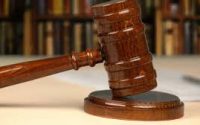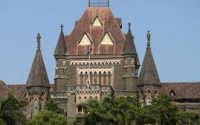$100 Website Offer
Get your personal website + domain for just $100.
Limited Time Offer!
Claim Your Website NowBhima Koregaon violence: Bombay High Court reserves order on Navlakha plea to quash FIR
Source: indianexpress.com
THE BOMBAY High Court on Friday reserved its orders on a petition filed by activist Gautam Navlakha, seeking to quash the FIR lodged against him by the Pune Police last year in connection with a public meeting held in Pune on the eve of the 200th anniversary of the Battle of Bhima Koregaon.
Navlakha was among several prominent activists charged by Pune police in the case, and accused of having links with the banned naxalite group, CPI-Maoist, which, the police claim, had organised the public meeting, named Elgaar Parishad, in Pune on December 31, 2017. Police say speeches made at Elgaar Parishad had contributed to the violence witnessed on the next day when lakhs of people had gathered in Pune to observe the anniversary of the Battle of Bhima Koregaon. One person had been killed in that violence, while several others were injured.
A division bench of Justice Ranjit More and Justice Bharati Dangre refused to quash the FIR but continued the interim protection order from arrest given to Navlakha till the final order was pronounced. “We’ll apply our mind and pass an order,” the bench said.
Advocate Yug Chaudhry, appearing for Navlakha, argued that his client could not be booked under Unlawful Activities (Prevention) Act (UAPA) based on the evidence produced by the Pune Police in the form of letters allegedly recovered from the laptops of Navlakha and the other co-accused.
The bench, however, questioned this premise. Referring to Section 13 of the UAPA, which penalises the advocating, abetting and advising of unlawful activities, Justice Dangre said: “Is it necessary that when someone drops a bomb only then you’re liable for such charges? There are abettors and conspirators too.”
Justice Dangre added that the Pune Police had produced additional material as part of evidence, and under such circumstances, it was difficult to conclude that there was no case to be made out and the FIR quashed.
Justice More said that the documents presented by the police show material against Navlakha. “How do we pretend that prima facie no offence has been committed at all?” he asked.
Earlier, Chaudhry had told the court that as part of his job, Navlakha had an open communication with the Naxals. He had carried out several researches and published books on Naxals, so his communication with them was in the public domain. The channel of relation as a journalist and open communication cannot attract provisions of the UAPA, he had claimed.
Chaudhry further said that as Navlakha had communicated with both the government and the Naxals, he was appointed as a mediator to negotiate for the release of the policemen abducted by the Naxals.



